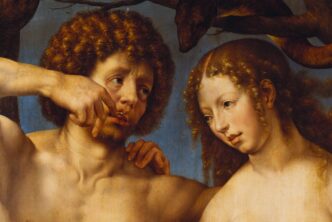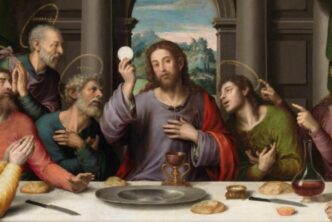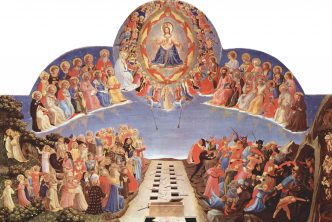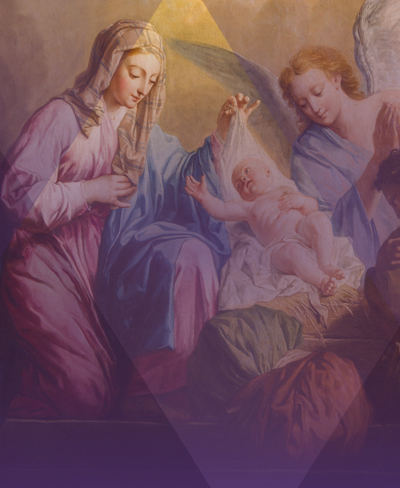Today’s guest post is by Robert Klesko, Verbum’s Catholic Educational Resources Product Manager
“Then the Lord said to Moses, “I am going to rain bread from heaven for you …” (Ex. 16:4)
“…and the bread that I give is my flesh, for the life of the world” (Jn. 6:52)
These two passages thrust us from Moses forward to Christ, revealing God’s great care for his people. Yet as plain as the words of Scripture are, we continue to ask like the Israelites “What is it?” (Ex. 16:15) and to proclaim “This is a hard teaching” (Jn. 6:61). The Eucharist is “a hard teaching,” and this is why the Catholic faith has written eloquently and often on the theology of the Eucharist. This theology is compiled in Fr. James T. O’Connor’s The Hidden Manna: A Theology of the Eucharist, available on sale this month from Verbum.
The Hidden Manna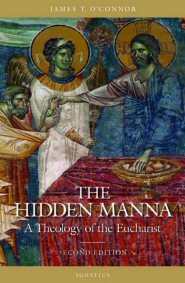
When we grapple with a mystery, we are prone to grumble—and this is another way in which the journey to understanding the Eucharistic mystery is like the journey of Israel. O’Connor states:
Israel’s grumbling never ceased. “Now these things occurred as types to keep us from setting our hearts on evil things as they did” (1 Cor. 10:6). It was then all a type of the Passover of the new Lamb, who has freed us from sin and misery, fed us with a more miraculous Food and Drink, and endured our grumbling.
“We never see anything but this manna! We detest this miserable food!” Even the miraculous wearied them, and they grumbled against it. Type that it was, it is sobering to reflect that we can say the same of the Eucharist: we are sick of it; it bores us; it does not satisfy. And we turn to other foods.
O’Connor captures an aspect of Christian life that Pope Francis has often spoken of, joylessness even in the face of such a great gift. Like Israel, many modern Catholics grumble and become disenchanted with the gift of the Eucharist.
Perhaps you have someone in your own life who has fallen away from the faith because the Eucharist, the central act of worship of the Christian people, has become ordinary. When reading of the Church’s understanding of the doctrine of the Eucharist, “ordinary” is a word that is never used. Perhaps all we need to draw the fallen away back to Eucharistic fellowship is to expose them to the beauty, mystery, and truth of the theology of the Eucharist. O’Connor quotes the great author, poet, and Catholic, J.R.R. Tolkien on his journey from spiritual darkness to the intense light and truth of the Eucharist:
Out of the darkness of my life, so much frustrated, I put before you the one great thing to love on earth: the Blessed Sacrament … There you will find romance, glory, honor, fidelity, and the true way of all your loves upon earth, and more than that: death: by the divine paradox, that which ends life, and demands the surrender of all, and yet by the taste (or foretaste) of which alone can what you seek in your earthly relationships (love, faithfulness, joy) be maintained, or take on that complexion of reality, of eternal endurance, that every man’s heart desires. (Letters, 53-55).
The journey from darkness to light, falsehood to truth, which so permeates all of Tolkien’s writings, is a direct result of his profound love of the Blessed Sacrament. The Hidden Manna draws on the theology and experience of Christendom’s greatest champions and provides pages of deep insight and inspiration.
The Hidden Manna would make an excellent addition to any Verbum library, but perhaps it would be best given as a gift, like the Eucharist itself. Whether you take advantage of this sale to deepen your own understanding of the Eucharist or give it as a gift to a friend in need of being brought back to the table of the Lord, The Hidden Manna is a tremendous asset to the Church. The secret of The Hidden Manna is the paradox that Christ is never really hidden, he is there waiting for us in every tabernacle, at every Mass—there waiting for us to partake of this truly wonderful gift!

